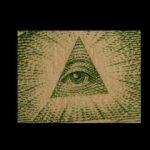Dallas and the JFK Assassination: Political Environment, Aftermath (2013)
The assassination and the subsequent conspiracy theories surrounding his death have been the topic for many films, including:
the 1966 Emile de Antonio documentary Rush to Judgment, based on Mark Lane’s book;
David Miller’s 1973 Executive Action;
Nigel Turner’s 1988, 1991, 1995 and 2003 continuing documentary The Men Who Killed Kennedy.
Oliver Stone’s 1991 JFK,[1] based in part upon the book On the Trail of the Assassins by former Orleans Parish (Louisiana) District Attorney Jim Garrison.
In 1975, a San Francisco-based group of artists called Ant Farm reenacted the Kennedy assassination in Dealey Plaza, and documented it in a video called The Eternal Frame. Two years later, the assassination was re-enacted again as part of the ABC television movie The Trial of Lee Harvey Oswald, looking at what might have happened had Jack Ruby not prevented Oswald from going to court. The 1983 NBC TV mini series Kennedy showed the assassination from Jackie Kennedy’s perspective.
Andy Warhol’s 1966 film Since recreated the assassination from multiple perspectives with participants from The Factory.[2] Since is heavily improvised and explores the media portrayal of the assassination.
The 1967 satirical play MacBird! by Barbara Garson superimposes the events of the assassination on the general plot structure of Shakespeare’s Macbeth, with Kennedy becoming murdered king “Ken O’Dunc” and Lyndon Johnson the treacherous title character. The mockery of the play’s name is derived from Johnson’s propensity to refer to his wife Claudia as “Lady Bird” and his elder daughter as “Lynda Bird.” Garson insisted that her play was a satire and not intended to suggest seriously that Johnson had had a hand in the assassination.[3]
In the 1992 drama film Love Field, Lurene Hallett, a Dallas hairdresser, attempts to travel to Washington to attend John F. Kennedy’s funeral. Though the movie encompasses other issues besides the assassination, it portrays one facet of the public reaction to the event.[4]
The JFK assassination was featured in the 1993 thriller film In the Line of Fire, starring Clint Eastwood. Set in present day, the film is about a psychopath who plans to assassinate the current President of the United States. Eastwood’s character is Secret Service agent Frank Horrigan, the last remaining active agent who was on duty in November 1963, guarding Kennedy in Dallas. Horrigan is consumed with guilt over his failure to react quickly enough to the first shot in Dallas.
The film Watchmen, based on the graphic novel, portrays The Comedian, one of the members of the Watchmen, as Kennedy’s assassin; he’s shown firing the fatal headshot from the grassy knoll.
The X-Files episode “Musings of a Cigarette Smoking Man” (1996) places a young cigarette smoking man as the assassin, shooting from a sewer drain located near the grassy knoll after setting up Oswald as his patsy.
The Doctor Who spin-off novel Who Killed Kennedy features the Doctor’s enemy the Master attempting to kill Oswald before the assassination as Kennedy’s survival would trigger a chain reaction in history that could wipe the Doctor from existence, requiring journalist James Stevens to go back in time and kill Kennedy himself (Acting as both gunmen at different points in his life as Oswald’s rifle had a misaligned targeting scope).
JFK’s assassination was featured in an episode of Mad Men, from season three in 2009 titled “The Grownups.” The episode focused on the characters reaction to JFK’s assassination and the subsequent events in their personal lives.
In the 2014 movie X-Men: Days of Future Past, during the sections of the film set in 1973, it is revealed that Magneto has been in prison since 1963 for his apparent role in the assassination, with evidence suggesting that he made the bullet curve to hit Kennedy, although Magneto himself states that he was actually trying to save Kennedy’s life, claiming that he was a mutant, and the police who arrested Magneto disrupted his concentration by causing the bullet to hit Kennedy despite his own efforts to stop it. Charles Xavier held Kennedy’s assassination against Magneto due to a similar incident shown in the film X-Men: First Class in which he caused a bullet to curve and hit Xavier’s spine, costing him his ability to walk, although it should be noted that Magneto was only attempting to deflect the bullet and Xavier’s injury was an accident.
Leave A Reply
You must be logged in to post a comment.









 Paranormal
Paranormal

